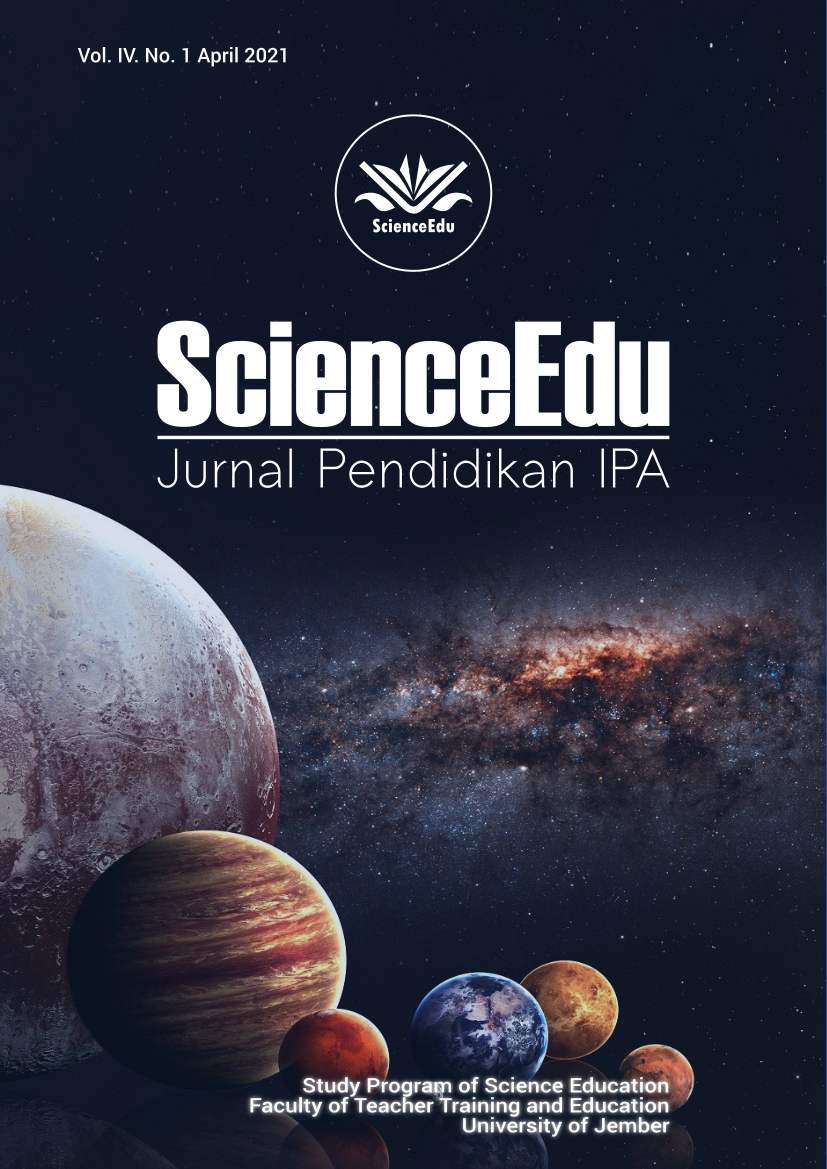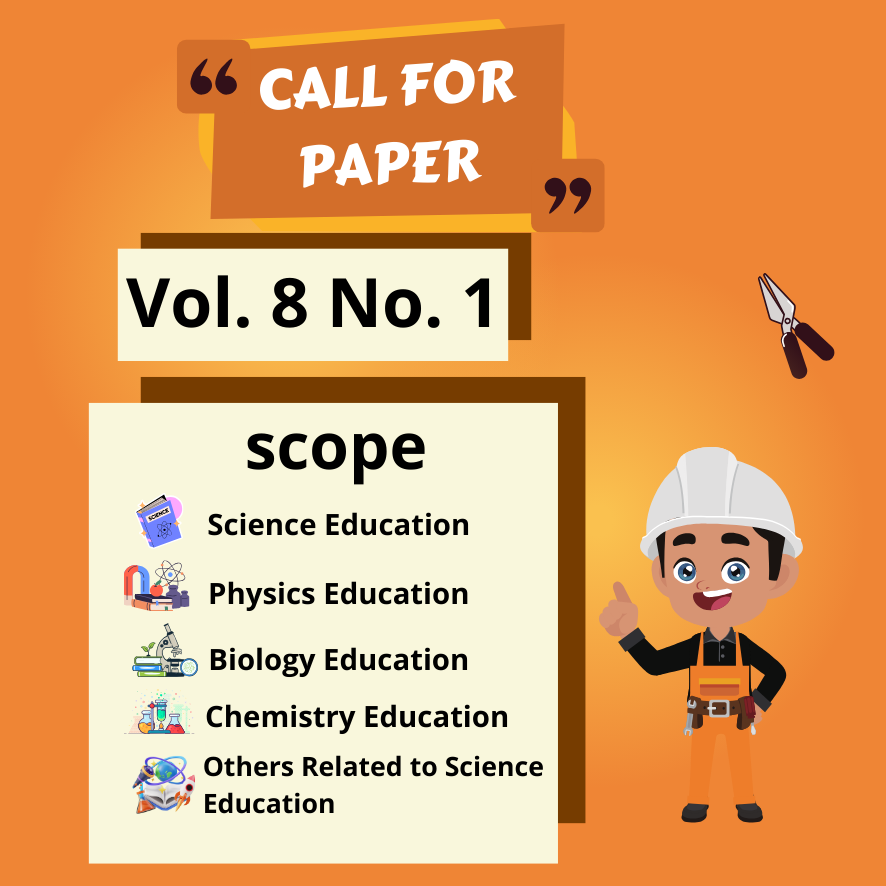STUDENTS' QUESTIONING SKILLS IN ENVIRONMENTAL POLLUTION COURSE USING CASE STUDY METHODS
DOI:
https://doi.org/10.19184/se.v4i1.23947Keywords:
Case study, Hots, Lots, Questioning skill, StudentsAbstract
Questioning skills are very important for prospective teacher students to master in order to help students learn actively in class later. Students' questioning skills are empowered through case study learning of environmental pollution subjects. Because it discusses pollution in the environment, a solution needs to be found. The purpose of this study was to determine the questioning skills of prospective teacher students in environmental pollution course using case study method. This qualitative descriptive research was conducted in the odd semester of the 2020/2021 academic year. The measurement instrument was in the form of scoring the students' questioning skill level based on the cognitive level of the revised bloom taxonomy. The research data were analyzed by using the percentage technique. The results showed that the questions asked by students at the low order thinking skills level were 83.33% and the high order thinking skills level was 26.66%. Furthermore, it is necessary to habituate students with asking questions with more intensive assistance and lecturers can provide more examples of questions at the high order thinking skills level.
Downloads
References
Bonney, K. M. (2015). Case Study Teaching Method Improves Student Performance and Perceptions of Learning Gains. Journal of Microbiology & Biology Education, 16(1), 21–28. Doi: https://doi.org/10.1128/jmbe.v16i1.846
Cahyani, P. A. H. I., Nurjaya, I. G., & Sriasih, S. A. P. (2015). Analisis Keterampilan Bertanya Guru dan Siswa dalam Pembelajaran Bahasa Indonesia di Kelas X TAV 1 SMK Negeri 3 Singaraja. E-Journal Universitas Pendidikan Ganesha, 3(1), 1–12. Doi: http://dx.doi.org/10.23887/jjpbs.v3i1.7204
Giacalone, D. (2016). Enhancing Student Learning with Case-based Teaching and Audience Response Systems in an Interdisciplinary Food Science Course. Higher Learning Research Communications, 6(3). Doi: https://doi.org/10.18870/hlrc.v6i3.304
Minniti, L. F. S., Melo, J. S. M., Oliveira, R. D., & Salles, J. A. A. (2017). The Use of Case Studies as a Teaching Method in Brazil. Procedia-Social and Behavioral Sciences, 237(June 2016), 373–377. Doi: https://doi.org/10.1016/j.sbspro.2017.02.024
Roell, C. (2015). Using a Case Study in the EFL Classroom. English Teaching Forum, 57(4), 24–33. http://search.ebscohost.com/login.aspx?direct=true&db=eric&AN=EJ1236098&site=ehost-live
Santoso, T., Yuanita, L., & Erman, E. (2018). The Role of Student’s Critical Asking Question in Developing Student’s Critical Thinking Skills. Journal of Physics: Conference Series, 953(1). Doi: https://doi.org/10.1088/1742-6596/953/1/012042
Yuliawati, Y., Mahmud, M., & Muliati, M. (2016). Teacher’s Questioning and Students’ Critical Thinking in EFL Classroom Interaction. ELT Worldwide: Journal of English Language Teaching, 3(2), 231. Doi: https://doi.org/10.26858/eltww.v3i2.2261
Zulkifli, H., & Hashim, R. (2019). The Development of Questioning Skills through Hikmah (Wisdom) Pedagogy. Creative Education, 10(12), 2593–2605. Doi: https://doi.org/10.4236/ce.2019.1012187
Prilanita, Y. N., & Sukirno, S. (2017). Peningkatan Keterampilan Bertanya Siswa Melalui Faktor Pembentuknya. Cakrawala Pendidikan, (2), 244–256.



